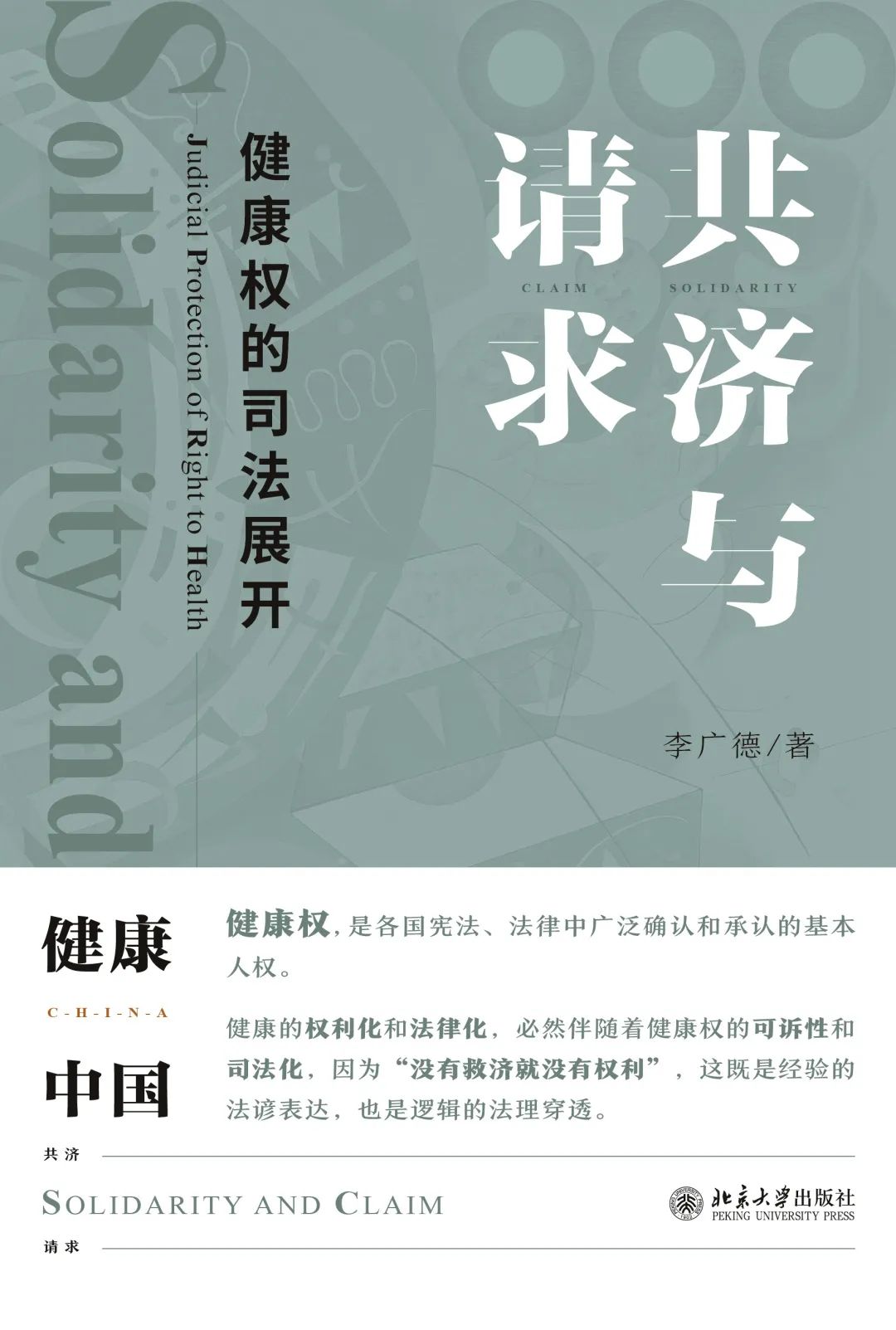
The right to health is a basic human right widely confirmed and recognized in the constitutions and laws of various countries. The recognition and the legal protection of the right to health are bound to be accompanied by the justiciability and judicialization of this right because "there is no right without remedy” is not only the legal proverb expression of experience, but also the jurisprudential embodiment of logic. China has realized the positivisation and legalization of the right to health through the adoption of the Law on the Promotion of Basic Medical and Health Care as the basic administrative law and the Civil Code as the basic civil law, thus establishing the Chinese model of dual public and private law protection of citizens' right to health. Under this model, how to effectively establish and improve the supporting judicial protection system has become an important issue in the law-based construction of a Healthy China and law-based state governance. This book is a systematic answer to the above questions both at home and abroad.
This book is divided into two parts: the first part introduces the basic theory of the right to health, including the jurisprudence, the type of positivisation of the right to health, the dilemma of justiciability of the right to health as a social right, the mode of judicial remedy and the dilemma of positivization of citizens' right to health in China. The second part focuses on the institutional field of the construction of a Healthy China, selects the specific field of public health law as the main subject of study, and discusses three specific topics: the theoretical coordinates of public health law, the adjustment objects of the Law on the Prevention and Control of Infectious Diseases and the reform of drug registration system. The appendix of this book contains the provisions on the right to health in international human rights documents compiled by the author, norms on the right to health in constitutions of various countries and two foreign papers on public health law translated by the author, thus enriching the contents of foreign systems and practices of the right to health and public health law in the book.
This book is based on the improvement of the system of health policies, laws and administrative regulations, focuses on the modernization of governance system and governance capacity in the health field, and pays attention to the key areas of public health at present. As such, it is of positive significance to promoting the innovation, in-depth development and improvement of the theory and practice of the right to health and public health law, fills a theoretical gap in this field, and provides a useful reference for solving related difficult problems in judicial practice and a preliminary theoretical guide for giving full play to the role of the rule of law in the construction of a Healthy China.



